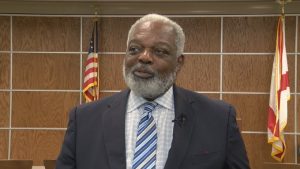Nikolas Cruz will get a life sentence without the possibility of parole, for the February 2018 massacre at Marjory Stoneman Douglas High School in Parkland, Florida, which left 17 people dead, including 14 students and three school staff.
The penalty was recommended by a Florida jury.
Also read: Nikolas Cruz sentencing: Parkland school shooter hearing set for November 1
Cruz was sentenced following a lengthy trial that lasted several months. The gunman, now 24 years old, was urged to get the death penalty by the jury, with the prosecution’s argument that his crime was particularly wicked or cruel.
Cruz’s sentence defaults to life in prison without the unanimous jury recommendation necessary by Florida law, contrary to what the gunman’s defence counsel had contended. They said Cruz had mental health issues and developmental impairments his whole life.
Broward Circuit Judge Elizabeth Scherer set the sentencing date for November 1.
Also read: Nikolas Cruz family: All you need to know
Cruz’s lawyers had previously pleaded with the jury to spare his life. The lead defence attorney, Melisa McNeill, urged the jury to sentence her client to life in prison rather than death. She argued in her closing remarks that doing it is the right thing to do.
Both the prosecution and the defence presented evidence of aggravating and mitigating circumstances during the lengthy trial, arguing for and against Cruz’s execution.
Also read: Parkland school shooter, Nikolas Cruz sentencing: Jury recommendation
Throughout the trial, lead prosecutor Michael Satz testified that the state had identified seven such aggravating factors, including the murders being particularly horrific, awful, or cruel, as well as cold, calculating, and premeditated.
Other aggravating factors include the defendant’s knowledge of the high risk of many lives being lost and the disruption of a legitimate government function, in this case, school operation.







